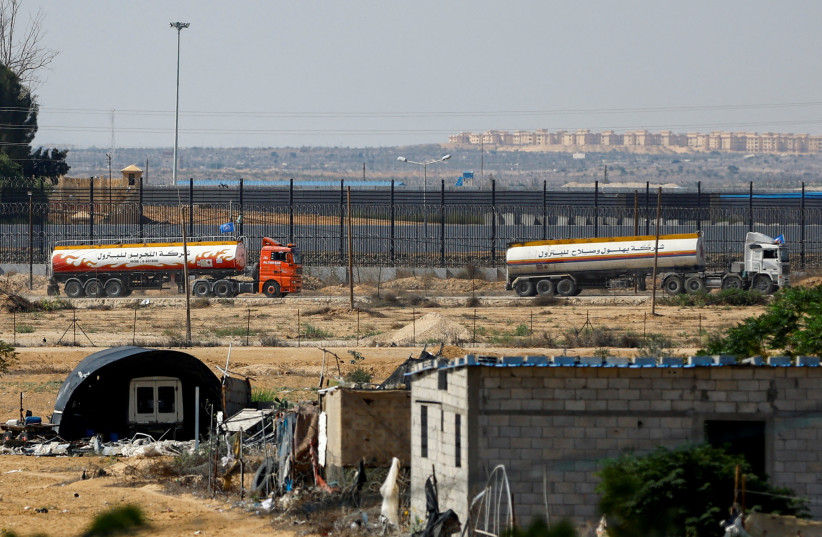The IDF released a detailed report on Friday regarding the humanitarian aid it is providing to Gaza.
The operation is complex logistically, requiring cross-border coordination and a joint effort between Israel, the United States, Egypt, and the UN.
"The war against Hamas is a fight for Israel's right to exist in peace, for Western values, and freedom from brutal terrorism against both Israelis and Gazans," the statement said.
"Israel is going to extreme lengths to mitigate harm to civilians and is calling on the international community to increase humanitarian aid being sent to Gaza," it continued.
It concluded on a final note, "Israel is fully committed to facilitating and supporting all humanitarian efforts by the international community while working to free the Israeli hostages, dismantle Hamas, and bring hope for a better future for the people of the Middle East."

How the aid gets into Gaza
The convoy undergoes double inspection. From the Egyptian port of Al-Arish, the aid is first delivered to the Rafah border crossing, where Egyptian officials search only to be followed by a stop at the Nitsana or Kerem Shalom crossings for Israeli inspection.
Solely then can the goods be returned to the Rafah border and dispatched to Gaza.
The humanitarian aid allowed into Gaza
According to the IDF, the joint effort led to a surge of 1000% in daily aid volume, feeding more than half a million people daily.
Along with food, fresh water is delivered on a daily basis, along with fuel destined for the distillation plants. Regarding the two Israeli pipelines that Hamas damaged on October 7, these are now operational. In addition, water runs through a recently built Emirati pipeline, which enables the daily flow of 33 million liters of fresh water, the statement said.
There are four large operational field hospitals in Gaza, which supply medical aid. These are supported by two medical ships docked at the Egyptian Al-Arish port, enabling staff rotation, the IDF stated.
Israel also allows international medical teams to enter Gaza and enables patients to be evacuated when the need arises.
The military also expounded upon the various shelter equipment that has entered the Strip, which includes tents, mattresses, blankets, and diverse hygiene products.
The report comes amid South Africa's case against Israel at the ICJ which accuses Israel of committing genocide.
